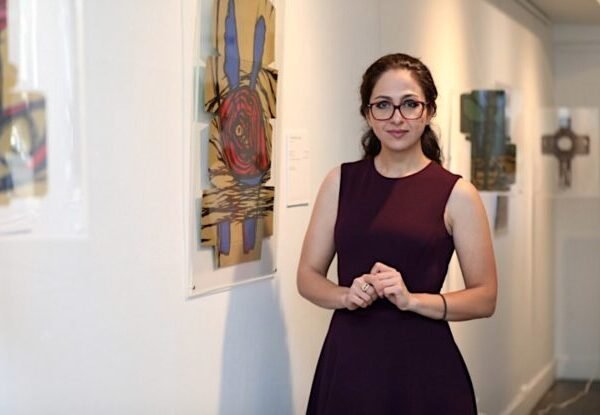Investment in South Sudan’s Tourism Sector: A Vision for Economic Growth
South Sudanese entrepreneur Mosety Kat Monyjok is championing investment in the country’s tourism sector, emphasizing its untapped potential to diversify the economy. With South Sudan heavily reliant on oil revenue, Monyjok advocates for developing tourism as a sustainable alternative, particularly focusing on historical and eco-tourism opportunities that the nation can offer.
The Untapped Potential of South Sudan’s Tourism
South Sudan boasts a rich cultural heritage and natural beauty, yet its tourism potential remains largely unexplored. Monyjok highlights the country’s diverse ecosystems, including vast wetlands, savannahs, and forests, which are home to unique wildlife and migratory bird species. These assets make South Sudan an ideal destination for eco-tourism enthusiasts seeking off-the-beaten-path adventures.
Historical Tourism: A Glimpse into South Sudan’s Past
South Sudan’s history is deeply rooted in ancient African traditions and civilizations. Sites like the Sudd Wetlands, the largest swamp in the world, and cultural landmarks in regions such as Juba and Malakal, offer a window into the country’s heritage. Monyjok believes that restoring and promoting these sites could attract tourists interested in historical exploration.
Diversifying Beyond Oil: A National Imperative
The South Sudanese economy currently depends heavily on oil revenues, making it vulnerable to global market fluctuations. Monyjok argues that investing in tourism could create a more resilient and diversified economy. By developing the tourism sector, the country could generate revenue from international visitors while creating jobs for local communities.
Eco-Tourism: A Sustainable Development Pathway
Monyjok stresses the importance of eco-tourism, which aligns with global trends favoring sustainable travel. South Sudan’s pristine environments and biodiversity make it an attractive destination for eco-conscious travelers. Properly managed eco-tourism initiatives could help conserve the country’s natural resources while providing economic opportunities.
The Role of Infrastructure in Developing Tourism
A key challenge to developing South Sudan’s tourism sector is the lack of infrastructure. Monyjok highlights the need for investments in roads, airports, and hospitality facilities to make tourist destinations more accessible. He urges both the government and private investors to prioritize infrastructure development to unlock the country’s tourism potential.
Promoting Community-Based Tourism
Community-based tourism, where local communities actively participate in tourism activities, is another area that Monyjok advocates for. This approach not only empowers communities but also ensures that the economic benefits of tourism are distributed equitably. It fosters cultural exchange and provides visitors with authentic experiences.
Wildlife Conservation: Protecting South Sudan’s Biodiversity
The success of eco-tourism in South Sudan hinges on the conservation of its wildlife. Monyjok emphasizes the need for strong conservation policies to protect endangered species like the African elephant and giraffe. Partnerships with international conservation organizations could help establish protected areas and promote wildlife tourism.
Building Strategic Partnerships for Growth
To realize its tourism potential, South Sudan must forge partnerships with international tourism organizations, investors, and conservation groups. Monyjok believes that such collaborations can bring in the expertise and funding needed to develop the sector sustainably and responsibly.
The Role of Government in Tourism Development
Monyjok urges the South Sudanese government to take a proactive role in developing the tourism industry. By implementing favorable policies, such as tax incentives for investors and streamlined visa processes, the government can create an enabling environment for the sector to thrive.
Marketing South Sudan as a Destination
Global awareness of South Sudan’s tourism potential remains low. Monyjok stresses the importance of branding and marketing the country as a destination for eco-tourism and cultural exploration. Digital campaigns, partnerships with travel agencies, and participation in international tourism expos could help attract global visitors.
The Job Creation Potential of Tourism
Tourism has the potential to create thousands of jobs across various sectors, including hospitality, transportation, and local crafts. Monyjok highlights that investment in tourism can provide employment opportunities, particularly for youth and women, thereby addressing unemployment challenges in the country.
Attracting Adventure Tourism Enthusiasts
South Sudan’s rugged landscapes and challenging terrains are ideal for adventure tourism. Activities like trekking, river rafting, and wildlife safaris could attract thrill-seekers from around the world. Monyjok advocates for creating packages that cater to adventure tourism enthusiasts.
Preserving Cultural Heritage Through Tourism
Cultural tourism offers a way to celebrate and preserve South Sudan’s rich traditions. Festivals, traditional dances, and local cuisine could be integrated into tourism experiences. Monyjok believes that showcasing the country’s culture can foster national pride while attracting international interest.
Tourism as a Catalyst for Peacebuilding
Tourism can also play a role in peacebuilding and reconciliation. By promoting a positive image of South Sudan and fostering economic stability, tourism could contribute to long-term peace. Monyjok emphasizes that tourism development must be inclusive and focus on uniting communities.
Encouraging Local Entrepreneurship in Tourism
Monyjok underscores the importance of supporting local entrepreneurs in the tourism sector. Small businesses, such as tour operators, craft makers, and local guides, can thrive with the right support and training. This entrepreneurship will strengthen the sector’s foundation.
Addressing Challenges to Tourism Growth
Despite its potential, South Sudan’s tourism sector faces challenges such as political instability, inadequate infrastructure, and limited funding. Monyjok calls for a concerted effort to address these barriers, emphasizing the importance of creating a stable and investor-friendly environment.
The Role of Technology in Tourism Development
Technology can play a pivotal role in promoting South Sudan’s tourism. Monyjok suggests leveraging digital platforms to showcase the country’s attractions, streamline booking processes, and connect with a global audience. Innovations like virtual tours could also boost interest.
A Long-Term Vision for Tourism
Monyjok’s vision for South Sudan’s tourism sector extends beyond short-term gains. He advocates for a sustainable, long-term strategy that balances economic growth with environmental conservation and cultural preservation. This vision requires collaboration between stakeholders at all levels.
Conclusion: Unlocking South Sudan’s Tourism Potential
Mosety Kat Monyjok’s call for investment in South Sudan’s tourism sector shines a light on the country’s immense potential. By focusing on eco-tourism, cultural heritage, and infrastructure development, South Sudan can diversify its economy and create a sustainable future. With the right investments and strategies, tourism could become a cornerstone of South Sudan’s economic transformation.



